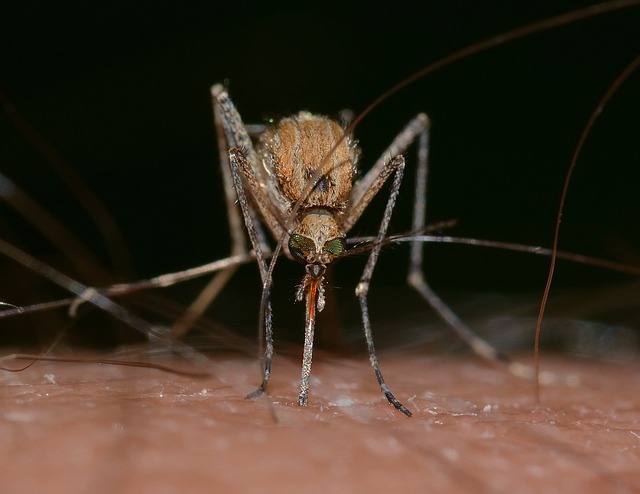Introduction to Mosquito Control
Mosquitoes are more than pesky insects; they threaten public health by spreading severe diseases such as Zika, dengue, and malaria. Effective mosquito control is essential to minimize these health risks. For those seeking reliable mosquito control near me solutions, exploring innovative techniques beyond traditional methods is crucial.
With the advent of new technologies and increased awareness about mosquito behavior and habitat management, we can implement more effective measures to protect our environment from these disease-carrying pests.
Understanding the Basics of Mosquito Behavior
Understanding mosquito behavior is critical to effectively managing infestations. Mosquitoes do well in hot, damp conditions and are most active at sunrise and sunset, drawn to warmth, light, and carbon dioxide. Recognizing these patterns helps implement preventive measures. Incorporating outdoor pest control solutions like mosquito nets, repellents, and professional services can enhance control efforts. Different mosquito species have unique behaviors—Aedes aegypti, which bites indoors and during the day, and Anopheles, which is active at night. Tailoring strategies to these specific behaviors can significantly improve mosquito control.
Natural Repellents: Safe and Effective
Natural repellents are increasingly favored for their safety and effectiveness in mosquito control. Plant-based repellents are endorsed by offering a non-toxic alternative to chemical repellents. Essential oils like citronella, eucalyptus, and peppermint are effective at repelling mosquitoes and are safe for humans and pets. Available in candles, sprays, and oils, these natural repellents offer convenient options for everyday use. Citronella candles can deter mosquitoes outdoors, while eucalyptus oil can be applied to the skin. These natural solutions can enhance your mosquito control strategy and create a safer, more pleasant environment.
Innovative Technologies for Mosquito Control
Recent technological advancements offer new methods to reduce mosquito populations. UV light traps use ultraviolet light to lure and capture mosquitoes, whereas the Mosquito Magnet traps them by mimicking human carbon dioxide. Additionally, smartphone apps that emit ultrasonic frequencies aim to repel mosquitoes, though their effectiveness is still debated. These high-tech solutions can complement traditional methods, providing a more comprehensive approach to mosquito control.
Genetic Modification: A Future Solution?
Genetic modification of mosquitoes is emerging as a groundbreaking solution in the fight against mosquito-borne diseases. Scientists are focusing on altering the genetic makeup of male mosquitoes so that their offspring cannot survive. This approach, known as a gene drive, aims to reduce the mosquito population over time. According to a recent article on gene drives stopping mosquitoes from spreading malaria, these genetic modifications have shown promise in experimental trials.
While still experimental, this technique could revolutionize mosquito control by providing a sustainable and long-term solution. Genetic modification’s potential to significantly decrease mosquito-borne diseases represents a leap forward in public health initiatives. Continued research and development in this area are essential to realize its benefits and address ethical or ecological concerns.
Effective Habitat Management
One of the most effective ways to control mosquito populations is through habitat management. Mosquitoes thrive in standing water, making it crucial to eliminate stagnant water sources around your home and community. Regularly cleaning gutters, changing water in bird baths, and covering water storage containers can drastically reduce mosquito breeding sites.
In addition to these measures, landscaping strategies such as planting repellent plants like lavender and marigolds and maintaining a tidy yard can further deter mosquitoes. Implementing these habitat management techniques significantly reduces the local mosquito population and minimizes the risk of mosquito-borne diseases.
Quick Tips for Habitat Management
- Remove standing water in flower pots, drains, and other containers.
- Clean and maintain swimming pools regularly.
- Ensure water tanks and cisterns are tightly sealed.
- Trim tall grass and bushes where mosquitoes may hide.
- Use larvicides in water bodies that cannot be drained.
Community-Based Initiatives
Combating mosquitoes effectively requires a collective effort through community-based initiatives. Public awareness campaigns, neighborhood clean-ups, and workshops help reduce breeding sites and educate residents on control methods. Active community involvement enhances individual efforts, creating a safer environment for all. Organizing regular clean-up events, distributing informational flyers, and forming local committees are essential to successful mosquito control. The effectiveness of these initiatives depends on active participation and collaboration, fostering a shared responsibility in fighting mosquito-borne diseases.
Organizing Community Efforts
To maximize community-based mosquito control, organizing and coordinating efforts is crucial. Establishing a local task force dedicated to mosquito control can streamline activities and ensure comprehensive coverage. Collaborating with local health departments and environmental agencies enables the implementation of targeted measures. Hosting workshops and educational seminars can raise awareness and teach residents effective methods to reduce mosquito breeding grounds. Consistently assessing and evaluating these efforts assist in pinpointing areas that need enhancement and adjusting tactics to evolving mosquito patterns.
Conclusion
Staying safe from disease-carrying mosquitoes requires a multifaceted approach, combining natural repellents, advanced technologies, genetic research, and community efforts. Effective mosquito control enhances personal comfort and is vital for better health. By adopting these techniques, we can significantly reduce the impact of mosquito-borne diseases and contribute to broader public health goals, creating safer, healthier environments for everyone.


